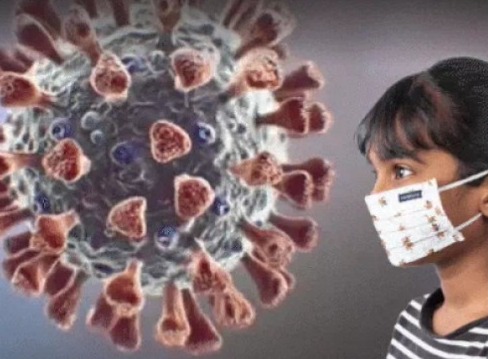Haryana has reported 9 new COVID-19 cases in the past 72 hours, with cases detected in Gurugram, Faridabad, Yamunanagar, and Karnal. The infected individuals include women, elderly people, and youth—among them a doctor, a manager, and a software developer. Notably, none of the cases have an international travel history, although three had recently traveled to Mumbai, Delhi, and Punjab.
During the 2020–21 COVID-19 wave, Haryana recorded over one million cases and more than 10,000 deaths. While the virus was new then, vaccines and known variants are now available.
M4P surveyed hospitals in all 22 districts of the state to assess preparedness in case of another outbreak. The findings show that only the districts with current cases appear to be on alert; others are awaiting cases or official directives from the headquarters before initiating testing or opening special counters.
Status in the 4 Affected Districts:
Gurugram:
Despite reporting 4 COVID cases, no separate sampling counter has yet been set up. It is scheduled to begin from Monday. RTPCR tests are ongoing. Oxygen plants with a 6,000 LPM capacity have been repaired. Stocks of N-95 masks, PPE kits, and COVID-related medicines are adequate. There are 500 oxygen beds available.
Faridabad:
Three cases have been reported. RTPCR testing has resumed after a pause. A special 10-bed COVID ward has been set up. All 24 oxygen plants are operational, and hospitals are being equipped with backup generators for power outages.
Karnal:
One COVID case has been confirmed. A 22-bed oxygen ward has been established. N-95 masks, PPE kits, and essential medicines have been procured. Karnal has two oxygen plants, including one at Kalpana Chawla Medical College, which has also set up a separate 35-bed ward.
Yamunanagar:
A woman tested positive here. Five beds have been reserved for COVID patients in the civil hospital. Sampling counters are active, though only suspected cases are being tested. RTPCR testing is currently unavailable. The oxygen plant is functioning.
Status in 18 Other Districts:
Hisar:
No sampling counters are active. The CMO said they are awaiting orders from the headquarters. Oxygen plants are functional, and medicines are in adequate supply.
Panipat:
No separate counters for sampling yet. RTPCR instructions have been issued. One of the oxygen plants had technical issues but is being repaired. 60 oxygen beds and a 10-bed isolation ward have been arranged. Demand has been raised for 1,000 PPE kits, 3,000 N-95 masks, and medicines.
Rohtak (PGI):
No dedicated sampling counters yet at PGI or civil hospital. Preparations are underway. Three oxygen generator plants with a combined capacity of 40,000 LPM are operational. Currently, 10 beds are reserved, including 2 ICU beds, with plans to increase if needed.
Rewari:
No separate sampling counter has started yet, though RTPCR testing has been ordered. One of the two oxygen plants is non-functional and awaiting service. There are about 300 oxygen beds available in public and private hospitals.
Ambala:
Sampling has not yet started; no counters have been set up. RTPCR testing, stopped after the third wave, hasn’t resumed. Oxygen beds are available, and plants are functional.
Bhiwani:
No sampling or RTPCR testing is being conducted. The district hospital’s oxygen plant is non-functional, with repairs estimated at ₹9 lakh.
Sonipat:
RTPCR testing is not routine but available on request. Oxygen supply is stable from hospital plants. The civil hospital has 200 beds.
Jind:
Oxygen plant at the civil hospital is broken, and ₹5 lakh has been requested for repairs. No RTPCR or rapid testing is being done due to a lack of test kits. The new hospital building has 50+ oxygen beds with piped supply.
Kaithal:
Ten beds have been reserved in a portable hospital. Though the oxygen plant is working, oxygen is still supplied via cylinders. Sampling counter not yet active. Lab is ready for RTPCR testing but hasn’t started tests.
Charkhi Dadri:
Sampling counter is operational. RTPCR samples are being collected. Eight ICU beds are reserved. Nineteen ventilators are available for critical needs.
Nuh:
No separate sampling counters established yet. Testing will be carried out at Nalhar Medical College, as in previous waves. Mandi Khera civil hospital has a COVID ward ready. Oxygen plant in Punhana is functional.
Fatehabad:
Sampling counters are not operational but preparations are underway. Orders from the headquarters for RTPCR testing are awaited. Three oxygen generator plants are functioning. The civil surgeon has requested status reports on masks, PPE kits, and medicines.
Mahendragarh:
No separate counters or RTPCR testing yet. However, oxygen plants are operational, and medicines have been stocked. Officials say they are fully prepared.
Sirsa:
Six-bed special ward marked for suspected COVID patients. Medical equipment, including ventilators and compressors, has been checked and re-tested. No instructions have been received for setting up a separate sampling center yet.
Palwal:
Sampling has begun at labs, but no separate counters are in place. RTPCR testing hasn’t started; only rapid tests are being done. All three oxygen plants are functional, with one also equipped with a generator.
Jhajjar:
Separate sampling counters for suspected patients will begin from Monday. Currently, only rapid tests are being done, with plans to restart RTPCR testing. PPE kits, masks, and medicines are adequately stocked.
Panchkula:
No COVID case has been reported so far. Sampling will begin only if a suspected case is found. Civil Surgeon Dr. Mukta has advised residents to follow existing guidelines.
Kurukshetra:
No test kits are available in government hospitals, though private hospitals have them. Suspected cases will be referred to private facilities for testing.
Health Expert Speaks:
Dr. Dhruv Chaudhary, HOD of Pulmonary Critical Care & Medicine at PGI Rohtak and nodal officer during all three COVID waves, said that the reported cases are all of the Omicron variant. He emphasized that people must learn to coexist with the virus and accept it as a part of life. “COVID is not going to disappear. Precaution is the only defense. Wearing masks must become a habit,” he stated. Among all known variants, Delta has proven to be the most dangerous so far.

